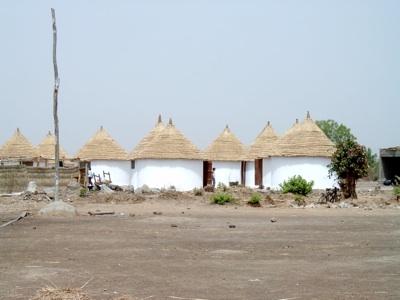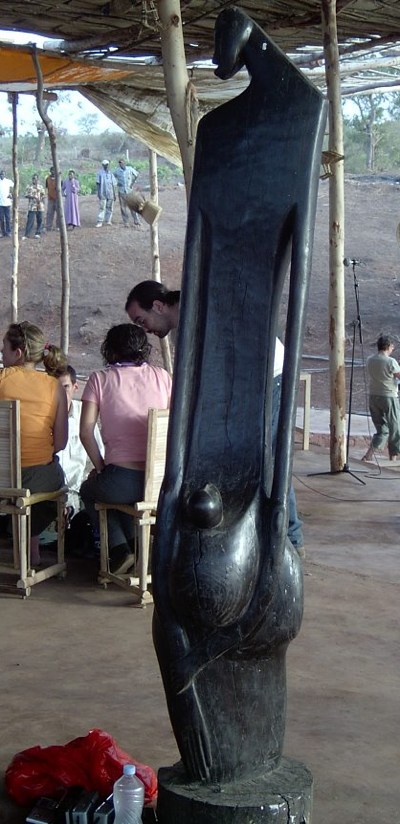I ni sógóma from Sélingué, Mali
[Editor’s note: Grassroots International’s Resource Rights Specialist Corrina Steward is in Sélingué, Mali, West Africa for the Nyeleni Food Sovereignty Forum with hundreds of women, peasants, fishers, indigenous peoples, environmentalists, and other activists from 80 countries around the world. She sent over this first of many blogs that will provide a daily glimpse of the proceedings as participants deliberate about food sovereignty and how to achieve it. Check in for Corrina’s reports as well as from others from the Middle East to Latin America and elsewhere.]
I ni sógóma from Sélingué, Mali. I am sitting in the dark in my traditional Malian hut that I’ll call home for the next five days. There is no electricity, running water or connection to the outside world. We are promised that all of these things are coming in the next few days (and if we get them, you’ll be reading this blog). I can hear loud drumming and singing from our Malian hosts, who are putting on an impromptu dance show only a few feet from my hut.
I’m here in Mali for Nyeleni – Forum for Food Sovereignty. I have come to listen and learn from many of our allies and partners in the struggle for food sovereignty. I am most interested to understand how questions of sustainability, biodiversity conservation and access to and control over natural resources are being addressed by the global food sovereignty movement.
But the journey here has only begun. I arrived in this hot, dusty, dry village as the sun was coming up. After several bureaucratic bumps in the road and a long, long ride from Bamako (Mali’s capital), I and my fellow bus mates from Indonesia, Holland, Canada, Mexico and Senegal arrived with the faint view of white circular buildings. They looked ghostly in the dusty dawn but we were greeted by two organizers that quickly found us a bed in these cozy buildings. This morning I was awakened by drumming and women’s voices singing. It was a fitting way to begin this first day of the forum, which was the Women’s forum.

The organizers have gone to great lengths to ensure that women have a strong voice in the forum and the outcomes. The forum itself is symbolized by the Malian woman farmer Nyeleni, who was a woman farmer in the 1800s. She was an only child and felt that all her life she was trying to make it up to her family that she was not a son, who could farm for her family.
Beginning with a local farming competition (typically, only open to men), she went on to be known throughout Mali and the region for her agricultural products. Now, because of this forum, she is known throughout the world.
There are many women here that are seeking the same honor and respect. In the forum, today they spoke about the unique role of women in the food system. And not just the traditional sense of ‘farming’ or ‘agriculture’ but in the forests, the oceans, the mangroves. A young woman from Brazil’s MPA (Movement of Small Farmers) put out the notion that women, in fact, should be recognized as the preferential stewards of biodiversity. A woman from Nepal picked up on this and said that women’s rights should be linked to resource rights.
Today made me wonder if we can have true sustainability and conservation of our global resources if we do not have justice and rights for women everywhere
There will be several more days to mull over these types of questions. I leave you tonight with the reassuring thought that there are hundreds of determined people working from this rural village in Mali to bring all of us the rights to resources and food sovereignty for generations to come. Even if the electricity doesn’t.

